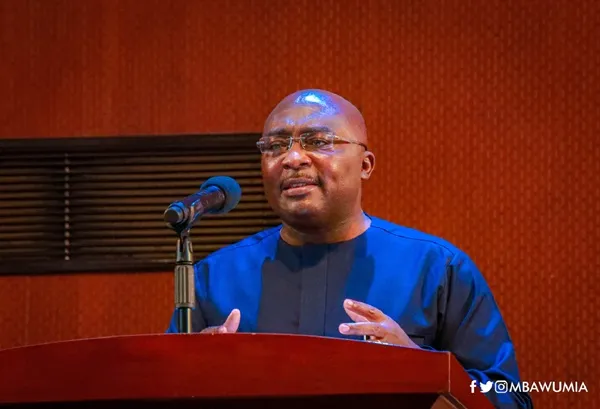The Vice President, Dr Mahamudu Bawumia, says the government’s decision to seek support from the International Monetary Fund (IMF) is due to the fiscal impacts of four blows that hit the country in the last few years.
Describing them as a “quadruple whammy,” he said they comprised internal and external factors; the energy sector excess capacity payments, the banking sector clean-up, the COVID-19 pandemic and the Russia-Ukraine war.
“If you take out the fiscal impact of this quadruple whammy, Ghana will not be going to the IMF for support because our fiscal, debt and balance of payments outlook would be sustainable,” he said.
Dr Bawumia was speaking at the launch of Accra Business School(ABS)’s Information Technology (IT) programmes in Accra yesterday on the theme “The role of IT education in the government’s digitalisation agenda.”
The launch of the programmes; BSc. IT Management; BSc. Cybercrime and IT Security; MSc. IT Management; which is a collaboration between ABS and the South East Technological University of Ireland, offered him the opportunity to speak on the IMF decision for the first time since it was announced last week.
Delving into the four blows which according to him resulted in a large increase in the country’s fiscal deficit and the debt stock, Dr Bawumia said, the banking sector clean-up cost the country GH¢ 25 billion.
He said the Energy Sector Excess Capacity payments of GH¢ 17 billion which relate to a legacy of take or pay contracts entered into by the previous administration, saddled the economy with annual excess capacity charges of close to $1 billion.
He said direct COVID-19 expenditure amounted to GH¢ 12.0 billion, made up of GH¢8.1 billion in 2020 and GH¢ 3.9billion in 2021, summing the three items of expenditure to GH¢ 54.0 billion.
“The Ministry of Finance estimates that the interest payment on this borrowing for the three items amounts to GH¢ 8.5 billion annually. This is some 23 per cent of Ghana’s annual interest payments of GH¢37 billion,” he said.
According to Dr Bawumia, without the GH¢ 54.0 billion debt Ghana’s debt to GDP would be within the sustainability threshold of some 68 per cent instead of the 76.6 per cent at the end of 2021.
The Russia-Ukraine war, he said, occasioned Ghana’s inflation to increase to 29.8 per cent in June 2022 as global supply chains were disrupted and shipping costs increased by over 1000 per cent.
He said there had been economic growth slowdown and higher Revenue projections in the 2022 budget which were based on tax exemptions, property rates and the E-levy did not materialise.
“With the challenges in accessing the international capital market, the balance of payments support was needed to bridge the financing gap, stabilise the economy and create space to implement structural reforms and restore debt sustainability. Hence decision to seek IMF support,” he said.
In order to make the country self-reliant as taught by the happenings over the last two years, Dr Bawumia said it was important that, among other things, fiscal and debt sustainability be restored immediately through revenue and expenditure measures and structural reforms.
He said non-concessional borrowing should be curtailed to enhance debt sustainability; foreign exchange reserve buffers should be built to cater for unanticipated shocks like COVID-19 and the Russia-Ukraine war.
He said industrialisation should be deepened through value addition to gold and bauxite; reform of the energy sector increased focus on agricultural production and digitalisation.
“With enhanced fiscal discipline and structural reforms to restore debt sustainability and growth, we should emerge stronger than we have with the previous 17 IMF programmes,” he said.
BY JONATHAN DONKOR || Ghanaian Times

